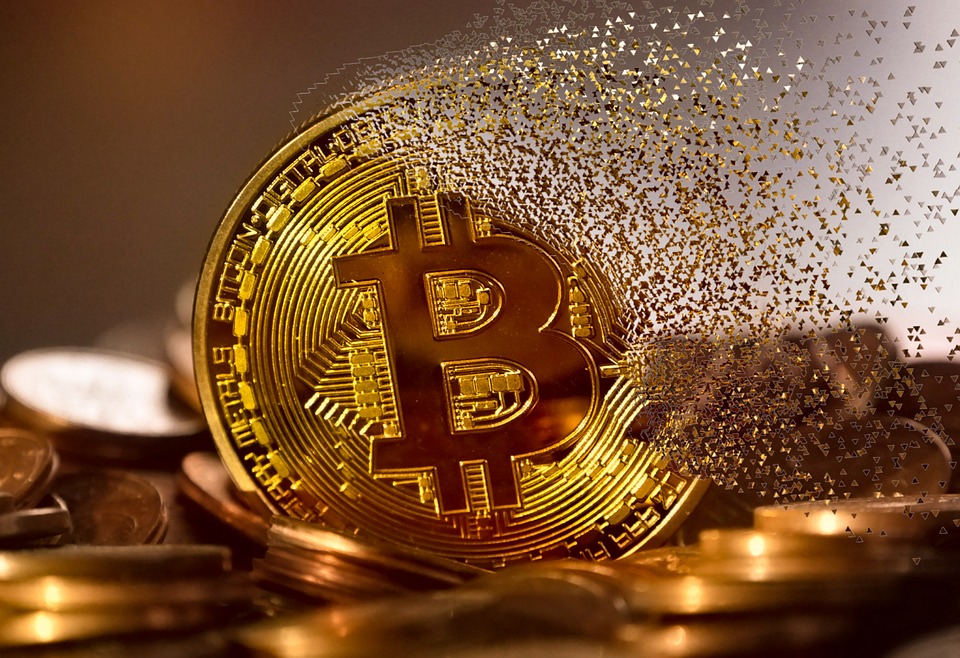Is Crypto Dead?

For crypto speculators, newbies, and “get rich quick” thrillseekers, last week was tough. The Chinese government re-signaled its displeasure with bitcoin and all things crypto, the IRS announced it is going to do what it can to tax every possible crypto transaction, and Elon tweeted, scaring the hell out of people who pay attention to him. Panic ensued. When it was over, Wednesday’s crypto crash vaporized about $1 trillion of market value.
The currency may be virtual, but for those who sold at a loss, the losses were real. And while the market came back a bit after the crash, this rollercoaster ride is getting even more extreme. Which is why it is no surprise that so many well-respected businesspeople and financial experts chose this past week to declare that crypto is “valueless,” or “nutso,” or “dead.” But think about this…
Was the internet valueless because the dot-com bubble burst?
Almost $8 trillion of wealth vaporized when the dot-com bubble burst in 2000. If you remember, there were companies on the NASDAQ with billion-dollar market caps that not only were not profitable but had no chance of ever being profitable. These financially engineered valuations were, in fact, fictitious. But that didn’t stop speculators, newbies, and “get rich quick” thrillseekers from taking the NASDAQ up over 5,000 in March 2000, and by January 2001 it was just under 2,300. It didn’t matter who you were or what your startup was about; by Q2 2000 you could not raise a dime if you even mentioned the idea of a “dot-com.”
But what did any of Wall Street’s insanity or the motivations of the professional wealth-creators on Sand Hill Road have to do with the value of the internet? No one would invest in a company that leveraged it. Did that mean the internet was dead? Was it valueless? Look around you today. Everything and everyone is connected to the internet. We could not function without it. And yet, just 20 years ago, no one would invest a dime into it.
If you ask the wrong question, you are guaranteed to get the wrong answer
If you look at the world of decentralized finance (DeFi) through the lens of cryptocurrency, you are looking at the dot-coms and not the internet. Early dot-coms were financially structured to benefit the venture capitalists (and an occasional founder) but few others. So it is with the proto-world of crypto.
Is bitcoin a store of value?
Bitcoin may or may not be a store of value. It may or may not become an exchange currency. It may or may not be “digital gold.” But bitcoin does have an important place in history. Its existence is proof that there is a well-understood, repeatable method for creating unique fungible and non-fungible digital tokens that cannot be copied or counterfeited without weapons-grade computer power.
Bitcoin also gave rise to altcoins of every description, thousands of them. Most are absolutely valueless, but some are now (or soon will be) important utility tokens, the exchange currencies of nascent DeFi systems that are going to empower completely new ways to transact business.
This is where you come in
If you are a crypto speculator, or a newbie, or a “get rich quick” thrillseeker, you can stop reading now. The rest of this article won’t help you. However, if you are thinking about the future, the silver lining to this past week is that the battle lines are now clearly drawn.
Big governments around the world have identified the threat that DeFi poses to their economic futures as well as their ability to govern. As the saying goes, a few trillion here, a few trillion there, after a while, it adds up to real money. Just how much wealth can be tied up in staked token-minting operations before a central bank notices a dip in the money supply? How likely is it for you to leave money on deposit in an FDIC-insured account when every second it sits there its spending power is diminished by inflation and government-controlled monetary policies you have zero control over? People who are in the taxation and money business are hyper-aware of the threat. This is good.
Speculators, newbies, and “get rich quick” thrillseekers got their as#@es handed to them last week. They won’t be back anytime soon. And next time we see them, they will be better prepared to invest.
Layer 2 solutions are almost here. When they are fully functional, they promise lower transaction costs, faster transaction times, and a massive reduction in energy use.
NFTs are getting people acquainted with digital wallets, marketplaces, and exchanges. Everyone learned to use a mouse by playing solitaire on their computer. We will learn the world of DeFi through sports, music, and entertainment NFTs.
This is not a sponsored post. I am the author of this article and it expresses my own opinions. I am not, nor is my company, receiving compensation for it.




And an interesting opinion indeed. And certainly correct as far as I see. Gambling on some stocks is a lot like gambling on that roulette wheel. Possibly winning, probably not winning. I might wager but it is never a gamble, because I know the answer. Those are the folks who get rich, very seldom quickly, though.
This looks to me a mean article. How? If I understood correctly, it says that (speculators, newbies, and quick rich seekers) have been used as Guinea pigs to try the v1 of crypto on them. This v1 will be used to enhance & release v2 which are the governments' own digital currencies. Those newbies have been cheated on and their investments vaporized! Please correct me if I am wrong!